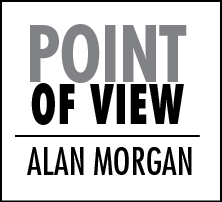Many rural American hospitals are struggling to keep their doors open in the face of rising costs. Fifty-eight have closed since 2010 and many more may follow if the pharmaceutical industry gets its way and dismantles a little-known federal drug discount program called 340B.
Congress created the 340B drug discount program more than 20 years ago with bipartisan support to help hospitals serving high numbers of needy people. In 2010, Congress expanded the program to rural hospitals to help them treat the uninsured, underinsured and other patients who have difficulty getting access to care.
Under the program, eligible hospitals receive pharmaceuticals at discounted prices from drug companies. These savings are passed on directly to patients in the form of no-cost/low-cost medicines. Healthcare providers also use the savings to fund care for heart disease, diabetes and cancer as well as other services such as obstetric care.
The drug industry is working hard in Washington to derail the program by limiting hospital and patient eligibility. And this from an industry that has pushed drug prices to astronomical levels while making record profits. A key government agency is currently mulling proposed changes that would severely limit how rural hospitals can access 340B savings. Particularly hard hit would be hospitals and clinics that provide oncology infusion in small towns across America. Oncology medications are not only expensive to purchase but difficult and costly to handle. The program currently helps these facilities, but many could close if the proposed changes are made, leaving patients to drive hundreds of miles for treatment.
Rural hospitals run on razor-thin margins. A third operate at a loss. Even more troubling, 69 percent have a negative operating profit margin. For many such hospitals, 340B savings makes the difference between continuing to serve the community and closing their doors forever.
The situation is especially alarming in rural America, where patients tend to be older, sicker, and poorer than their urban counterparts and are more likely to have multiple chronic conditions that require continual care.
Many require medications that are skyrocketing in price. The increases are staggering, even for many common drugs that hospitals have used for years. For example, the heart drug Isuprel has jumped nearly 17,000 percent in price and now costs $1,703 per vial.
The price increases aren’t just problematic from a health-care economy standpoint. They directly affect health outcomes because patients are less likely to fill prescriptions they can’t afford. As it stands now, more than 20 percent of prescriptions go unfilled.
When patients don’t fill their prescriptions, or take fewer doses to stretch their supply, they get sick again — and end up back in the emergency room — often on the taxpayers’ dime.
It’s important to understand that 340B is not taxpayer funded. The program is paid for by drug companies that can well afford it. 340B purchases represent just 2 percent of the $374 billion annual U.S. pharmaceutical market.
The 340B program serves as a life-line for rural hospitals facing daunting economic challenges. We cannot let this vital program fall prey to the Big Pharma profit machine.
When hospitals are healthy, communities stay healthy.
Alan Morgan is CEO of the National Rural Health Association.
• • • • •
Editor’s Note: According to a South Peninsula Hospital official, the Homer hospital has benefited from the 340B program for at least five years, and would be negatively impacted if it changed. If changes to the 340B program are approved, the primary factor hurting the hospital would be the cost for oncology drugs. Those oncology drugs would continue to be offered at a low rate to other hospitals, but not South Peninsula Hospital and other hospitals like it. Initial calculations show at least $100,000 annual increase to SPH’s pharmacy costs, which would not be recoverable (in other words, they could not be passed along in the billable rate to the insurance company).
South Peninsula Hospital currently is accepting nominations for its Board of Directors. Interested individuals can apply through Dec. 1. Information and packets are available at www.sphosp.org/about-sph/board-of-directors or by calling 235-0325.



